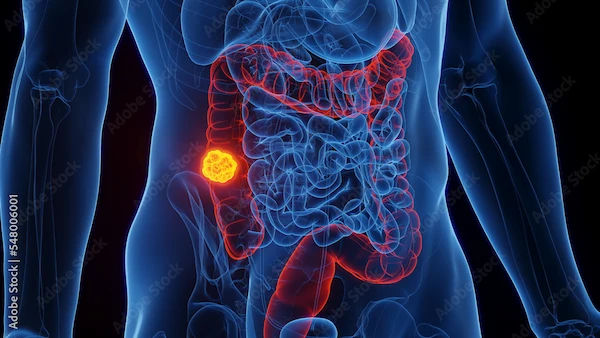Chemotherapy Options for Stage 2 Breast Cancer
Know about stage 2 breast cancer chemotherapy, drugs, how its given, how to manage during stage 2 chemotherapy and lifestyle tips to support recovery.

Written by Dr. Rohinipriyanka Pondugula
Reviewed by Dr. Vasanthasree Nair MBBS
Last updated on 8th Aug, 2025

Introduction
Facing a diagnosis of Stage 2 breast cancer can be overwhelming, but understanding your treatment options, especially chemotherapy can help you make informed decisions. Chemotherapy is a common and effective treatment that uses powerful drugs to destroy cancer cells or stop them from growing.
This article explains chemotherapy options for Stage 2 breast cancer, how it works, potential side effects, and ways to manage them. We’ll also discuss lifestyle tips to support your recovery.
What Is Stage 2 Breast Cancer?
Stage 2 breast cancer means the tumor is larger (2-5 cm) or has spread to nearby lymph nodes but hasn’t reached distant organs.
It is further divided into:
Stage 2A: Small tumor with lymph node involvement or a slightly larger tumor without lymph node spread.
Stage 2B: A larger tumor (2-5 cm) with lymph node involvement or a tumor over 5 cm without lymph node spread.
At this stage, chemotherapy is often recommended to reduce the risk of cancer returning.
Why Is Chemotherapy Used for Stage 2 Breast Cancer?
Chemotherapy may be given:
Before surgery (Neoadjuvant therapy) – To shrink the tumor, making surgery easier.
After surgery (Adjuvant therapy) – To kill any remaining cancer cells and lower recurrence risk.
Your doctor will consider factors like tumor size, hormone receptor status (ER/PR), HER2 status, and overall health before recommending chemotherapy.
Consult Top Specialists for Personalised Tips
Common Chemotherapy Drugs for Stage 2 Breast Cancer
Different drug combinations are used based on cancer type and patient health.
Common regimens include:
AC-T (Doxorubicin + Cyclophosphamide, followed by Paclitaxel or Docetaxel) – Effective for aggressive cancers.
TC (Docetaxel + Cyclophosphamide) – A shorter, well-tolerated option.
TCH (Docetaxel + Carboplatin + Trastuzumab) – Used for HER2-positive breast cancer.
CMF (Cyclophosphamide + Methotrexate + Fluorouracil) – An older regimen, sometimes used for low-risk cases.
Your oncologist will personalize your treatment based on cancer characteristics.
How Is Chemotherapy Given?
Chemotherapy is usually administered:
Intravenously (IV) – Through a vein in the arm or a port.
Orally – Some drugs come in pill form.
Treatment is given in cycles (e.g., every 2-3 weeks) to allow the body to recover. A full course may last 3-6 months, depending on the regimen.
Possible Side Effects and How to Manage Them
Chemotherapy affects fast-growing cells, including healthy ones, leading to side effects. Common ones include:
1. Fatigue
Follow the below things:
Rest when needed but stay lightly active (short walks help).
Eat small, frequent meals for energy.
2. Nausea & Vomiting
Follow the below things:
Anti-nausea medications can help.
Eat bland foods (toast, bananas, rice).
Stay hydrated with ginger tea or electrolyte drinks.
3. Hair Loss
Follow the below things:
Temporary; hair regrows after treatment.
Consider wigs, scarves, or hats.
4. Low Blood Cell Counts (Risk of Infections)
Follow the below things:
Wash hands frequently.
Avoid crowded places when counts are low.
Report fever or unusual symptoms immediately.
5. Mouth Sores
Follow the below things:
Use a soft toothbrush.
Rinse with saltwater or baking soda solution.
6. Neuropathy (Numbness/Tingling in Hands & Feet)
Follow the below things:
Report symptoms early—your doctor may adjust treatment.
Wear comfortable shoes to prevent falls.
Lifestyle Tips to Support Recovery
1. Eat a Balanced Diet
Include these in diet:
Focus on protein (lean meats, beans, eggs) for healing.
Include fruits, vegetables, and whole grains for nutrients.
Avoid processed foods and excess sugar.
2. Stay Hydrated
To stay hydrated:
Drink plenty of water, herbal teas, or broths.
3. Gentle Exercise
For gentle exercise do:
Walking, yoga, or light stretching can reduce fatigue.
4. Emotional Support
To get emotional support:
Join a support group or talk to a counselor.
Lean on family and friends.
5. Follow-Up Care
Attend all appointments for monitoring.
When to Seek Immediate Medical Help?
Contact your doctor if you experience:
High fever (over 100.4°F).
Severe diarrhea or vomiting.
Shortness of breath or chest pain.
Unusual bruising or bleeding.
Final Thoughts
Chemotherapy for Stage 2 breast cancer plays a crucial role in reducing recurrence risk and improving survival. While side effects can be challenging, modern treatments and supportive care make the process more manageable.
Consult Top Specialists
Consult Top Specialists for Personalised Tips

Dr. Gopal Kumar
Head, Neck and Thyroid Cancer Surgeon
15 Years • MBBS, MS , FARHNS ( Seoul, South Korea ), FGOLF ( MSKCC, New York )
Delhi
Apollo Hospitals Indraprastha, Delhi
(25+ Patients)

Dr. Rupam Manna
Radiation Specialist Oncologist
4 Years • MBBS MD(RADIO THERAPY)
Barasat
Diab-Eat-Ease, Barasat

Dr Gowshikk Rajkumar
Oncologist
10 Years • MBBS, DMRT, DNB in Radiation oncology
Bengaluru
Apollo Clinic, JP nagar, Bengaluru

Dr. V R N Vijay Kumar
Surgical Oncologist
9 Years • MBBS, MS (Gen. Surg.), DNB (Surg. Onco.)
Ahmedabad
Apollo Hospitals Gandhinagar, Ahmedabad

Dr. Amit Choraria
Surgical Oncologist
18 Years • MBBS, MS (Surgery) Fellow, Surgical Oncology, Tata Medical Center (FSO) Fellow, European Board of Surgery (Surgical Oncology) (FEBS) Fellow, Minimal Access Surgery (FMAS) Fellow, Indian Association of Gastrointestinal Endosurgeons (FIAGES) UICC Fellow, Royal Marsden NHS, London, UK Visiting Scholar, Plastic Reconstructive Surgery, CGMH, Taiwan Fellow, Robotic Surgical Oncology, Vattikuti Foundation, USA
Kolkata
Apollo Multispeciality Hospitals , Kolkata, Kolkata
(50+ Patients)
Consult Top Specialists

Dr. Gopal Kumar
Head, Neck and Thyroid Cancer Surgeon
15 Years • MBBS, MS , FARHNS ( Seoul, South Korea ), FGOLF ( MSKCC, New York )
Delhi
Apollo Hospitals Indraprastha, Delhi
(25+ Patients)

Dr. Rupam Manna
Radiation Specialist Oncologist
4 Years • MBBS MD(RADIO THERAPY)
Barasat
Diab-Eat-Ease, Barasat

Dr Gowshikk Rajkumar
Oncologist
10 Years • MBBS, DMRT, DNB in Radiation oncology
Bengaluru
Apollo Clinic, JP nagar, Bengaluru

Dr. V R N Vijay Kumar
Surgical Oncologist
9 Years • MBBS, MS (Gen. Surg.), DNB (Surg. Onco.)
Ahmedabad
Apollo Hospitals Gandhinagar, Ahmedabad

Dr. Amit Choraria
Surgical Oncologist
18 Years • MBBS, MS (Surgery) Fellow, Surgical Oncology, Tata Medical Center (FSO) Fellow, European Board of Surgery (Surgical Oncology) (FEBS) Fellow, Minimal Access Surgery (FMAS) Fellow, Indian Association of Gastrointestinal Endosurgeons (FIAGES) UICC Fellow, Royal Marsden NHS, London, UK Visiting Scholar, Plastic Reconstructive Surgery, CGMH, Taiwan Fellow, Robotic Surgical Oncology, Vattikuti Foundation, USA
Kolkata
Apollo Multispeciality Hospitals , Kolkata, Kolkata
(50+ Patients)


